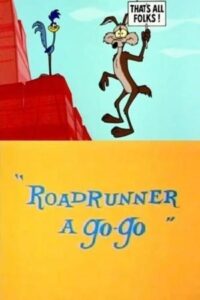Whisky Galore and A Go Go!
When it comes to etymology, most words have a somewhat mundane route into a language: they either are retained from a direct ancestor or were borrowed at some point from another language. Within the latter category, these words tend to come in batches, often either through an intensive period of contact between peoples, as with the Old Norse loans into English, or through the importation of specific vocabulary which related to aspects of culture which were being borrowed from the group in question, such as e.g law terms deriving from the French used in English courts after the Norman Conquest.
However, every so often, there come along lexical items with a significantly more complex and idiosyncratic path into a language, and occasionally words may interplay with one another in interesting ways. We find such a complex interplay with galore and agogo.
Galore by itself is already an interesting form, as it is one of a small number of loanwords from Gaelic (likely specifically Scottish gu leòr) which does not have some kind of connection with Gaelic culture or geography. This expression can mean either ‘enough’ or ‘much, plenty’, and occurs in several constructions as a result. For instance, in Scottish Gaelic when asked ‘how are you?’, one might respond ceart gu leòr ‘all right, OK’, literally ‘right enough’.
This phrase, in a number of varying spellings such as gilore or gallore, appears to have begun to arrive in English in the mid 17th Century (or at least this is the date of the earliest citation in the Oxford English Dictionary). When this form was borrowed into English it underwent semantic shift and narrowing, coming to specifically mean ‘in abundance, plenty’, losing the sense of ‘enough’. It seems to have been somewhat colloquial in use, not being particularly frequent in writing, and is disproportionately concentrated in Scottish works, including an attestation in the journals of Walter Scott.
This form comes to its greatest in prominence in English through its use in a Compton Mackenzie novel and later Ealing comedy titled Whisky Galore! Both the novel and film centre on a remote Scottish island, and the novel in particular makes use of Gaelic throughout, so the use of ‘galore’ fits in well with the setting.
This work in particular, however, had a more interesting impact than simple popularity. As with many best-selling works, it received translations into other languages, and in this case the French translation was titled Whisky à-Gogo, deriving likely from the Old French gogue ‘fun’. This title then was itself used as the name of a nightclub in Paris, the world’s first discothèque. The concept rapidly grew in popularity, with Whisky à-Gogo venues spreading across the globe, as far as Papeete in Tahiti (and Cardiff!), the most famous probably being the the Whisky a Go Go on Sunset Strip in Hollywood. (In the English-speaking world gogo got split into two, possibly on false analogy with the verb ‘go’.)

From here on ‘a go go’ or just ‘go go’ became a by-word for everything hip and cool (or ‘groovy’) in the 1960s. Go-go dancers dance in go-go clubs, of course, but the meaning became more and more nebulous over time. In cinema, 1965 was a banner year, with Roadrunner a go-go up against Monster a go-go. This year also an unsuccessful attempt to extend this—word? phrase?—by analogy, with the notorious Batman parody Rat Pfink a Boo Boo. Nobody seems to have got this (not terribly good) joke, and on subsequent reissues the film was “corrected” to Rat Pfink and Boo Boo. (You’re reading this etymology here first. Even the director who came up with the title didn’t realize it, but we’re linguists, we know better.) But the shelf life of terms denoting popular trends is short, and anyone using it now probably means for it to lend antiquated flavour of the swinging 60s. Contrast with galore, which retains its more generic use and seems unlikely to drop out of common usage in the near future.